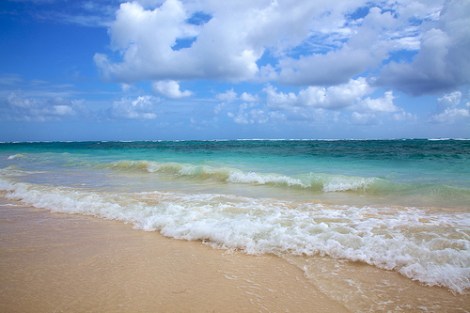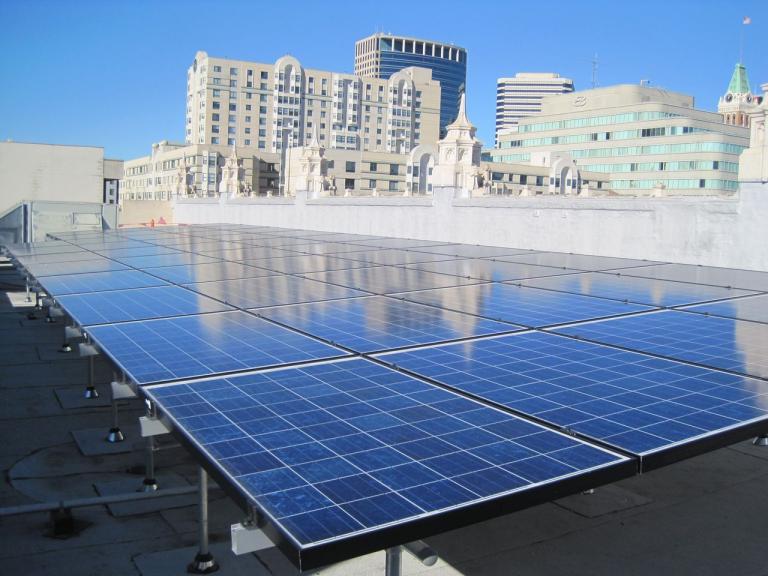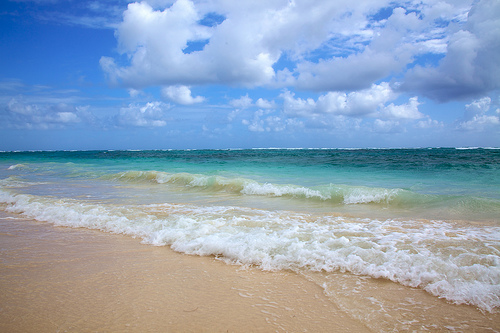
Another ugly power plant. (Photo by Avery Studio.)
The key to power generation is motion. Somehow, you need to rotate a magnet within a coil of wires (unless you’re using solar power, of course). The most obvious way to rotate the magnet is to use some sort of turbine to catch the flow of air or water or steam. The turbine turns, rotating the magnet. So for a long time, people have looked at the ocean and thought: Hmm.
The ocean moves in two ways: through currents and through waves. For decades, as journalist Alexis Madrigal notes, inventors struggled to figure out how to translate wave motion into power. They sat buoys on the water surface, created shoreline installations, tried various random combinations of mechanical parts — all for naught. Well, not entirely for naught. The stories are at least amusing.
With currents, there’s been more success. Yesterday, Ocean Renewable Power Company (ORPC) held the ceremonial launch for its project in Eastport, Maine. The Cobscook Bay Tidal Energy Project will put 20 small turbines on the ocean floor, generating enough power for 1,200 homes.
Tidal power has also been tried before — in Eastport. In the early 1930s, President Roosevelt championed an effort to build a dam at Eastport that would capture the tide when high and release water through a turbine system when the tide went back out. The project was soon revealed to not be worth the cost. More recently in New York, a pilot project by Verdant Power placed turbines at the bottom of the East River using the river’s currents to generate 70 megawatts of energy. Verdant received approval earlier this year to expand the project.
ORPC’s project has been broadly embraced. At its blog, the Natural Resources Defense Council notes that the benefits from the project extend beyond the use of renewable power to employment for local workers and components from local manufacturers.
As reported by The Boston Globe:
In Eastport, the tidal power is already generating an economic boost for the long-struggling community. People are quick to tick off names of relatives and friends who do business with Ocean Renewable Power. Bank Square Pizza and Deli/Mexcetera proudly displays a sign near the cash register touting the establishment as “ORPC’s Favorite Mexican Restaurant.”
Eastport’s excitement is clearly warranted. But the rest of us should be at least a little giddy, too. I mean, after — what? 50,000 years of human existence? — we’ve finally figured out how to convert the motion of the ocean into power generation (pronounced jen-er-OH-shun). Not flawless, not to scale, but it has been done.
Meanwhile, I have to get back to work on my wave-power device. I’ve got a really good feeling about it.




